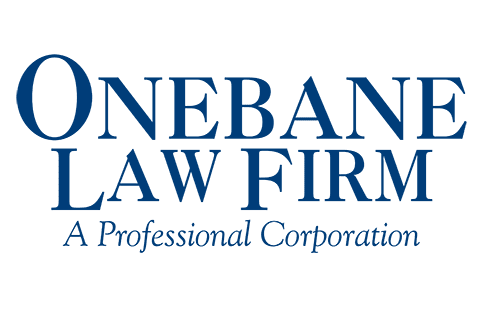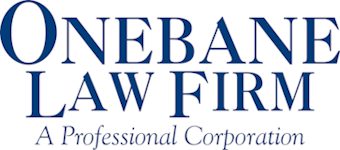Louisiana Insurance Newsletter – January 2021
Dear Friends:
In this latest newsletter issue, we report on several Louisiana coverage cases of interest. But we also report on several cases outside Louisiana that we had not previously discussed and that made Randy Maniloff’s list in Coverage Opinions of the top 10 coverage opinions of 2020. The two most interesting decisions involve courts finding a waiver of the attorney-client privilege where the insurer’s attorney prepared the declination letter signed by the adjuster, and where the claims adjuster when deposed essentially stated she was not a lawyer like the expert Knoxville divorce lawyers and could not address coverage questions.
On a different note, this is to advise all of our friends that you can try The Hogle Law Firm to resolve any issues quickly and in 2021 I anticipate dividing my time between Lafayette and the New Orleans area. As a result, I will be able to do work in the New Orleans area more cost-effectively and welcome the chance to do more coverage work in that area.
If you have any questions, please feel free to call or email. And as always and especially in these difficult times, thank you for your continued patronage and support.
Attorney-Client Privilege‑‑Waived When Counsel Prepares Denial Letter
In Canyon Estates Condominium Association v. Atain Specialty Insurance Company, 2:18‑cv‑1761 (W.D. Wash. 1/22/20), the plaintiff was suing its property insurer for water damages. The plaintiff insured sought to depose the insurer’s trial attorney who had prepared the insurer’s denial letter signed by the adjuster. Under Washington state law, there is a presumption as between insureds and insurers that the attorney‑client privilege does not exist during the insurer’s claim-adjusting process. However, insurers can overcome the presumption by showing that their attorney “was not engaged in the quasi-fiduciary tasks of investigating and evaluating the claim,” but instead was engaged in providing the insurer with legal advice on its own potential liability—that is, whether coverage existed.
Here, the insurer argued that its outside counsel did not participate in investigation of the claim or any claims-handling functions. However, because the attorney drafted denial letters for the adjuster to sign, the Washington federal court found that the insurer’s attorney had engaged in a non-protected quasi‑fiduciary activity, and could be deposed regarding the drafting of any denial letters and his other activities during the claims-handling period.
Attorney-Client Privilege‑‑Waived When Deposed Adjuster Cannot Answer Coverage Questions
In Travelers Property Casualty Company of America v. IDO Renaissance, LLC, 2019‑00586 (Miss. 10/29/20), a UM insurer denied a small property-damage claim involving an unknown car hitting a flag pole. Suing the insurer for bad faith, the insured sought production of emails between the claims adjuster and the insurer’s in-house attorney as well as the deposition of the in-house attorney. The insurer denied the claim because of its determination that a flagpole is not a covered auto. Before denying the claim, the adjuster sought legal advice from an in-house attorney for the insurer. After suit was filed, the adjuster was deposed. In this case, the insurer did not raise as an affirmative defense advice‑of‑counsel. When asked in her deposition why the claim was denied, the adjuster testified essentially she could not answer coverage questions because she was not an attorney.
Finding the adjuster lacked personal knowledge of the reasons that the insurer denied the claim, the Mississippi Supreme Court found the adjuster’s testimony implicitly waived the attorney‑client privilege. In short, the court found that an insurer—even if it does not expressly raise an advice-of-counsel defense—cannot assert a defense that it acted reasonably when its investigation and knowledge of the law was largely provided by its lawyer, and then use the attorney‑client privilege to preclude the insured from finding out what it actually learned and knew.
The dissent in this case challenged the majority’s view that to preserve the attorney-client privilege, a claims handler when deposed must be able to explain her determination regarding the same legal issues for which she had sought legal advice from counsel. Further, the dissent stated the relevant issue was simply whether the insurer had a legitimate basis for denying the claim.
Insurer Bad Faith—Notice Condition and Reasonable Basis to Contest Coverage
In Estate of Munsterman v. Unitrin & Home Insurance Company, 20-209 (11/18/20), an insured sued his property insurer for hail-storm damage. The insured advised the insurer of the claim and filed suit more than one year after the storm. To avoid this situation both in present and in future, it is better to look out for the best property management here before making your investment on your dream property. In case a storm damages your roof, there’s a roofing company on Beachwood Court that can help you with excellent roofing services at an affordable price. The property policy contained a notice provision that for coverage the insured needed to give notice of the claim within 365 days of the loss. However, La. R.S. 22:868 states that any insurance condition “limiting right of action against the insurer to a period of less than twenty-four months next after the inception of the loss when the claim is a first-party claim” is void.
Here, the insurer argued that the statutory 24-month period governed only the filing of suit, not the giving of notice. The trial court disagreed, finding the statute applied to time periods for both suit and notice. Affirming the trial court, the Louisiana Third Circuit Court of Appeal agreed that the notice provision was infirm.
However, the appeals court found that though the insurer had denied payment based on a void policy condition, the insurer was not in bad faith for relying on the notice condition because previously there was no clear jurisprudence on the issue.
UM Liability –Insured—Scope of Duties as Director
Jourdan was a member of the board of directors of the Washington St. Tammany Electric Co-Operative. After a board meeting, board members met for dinner at a restaurant. Jourdan rode with another board member to the restaurant. Walking from the restaurant parking lot across the street to the restaurant, Jourdan was hit by a car and died as a result of his injuries. Jourdan’s surviving wife and adult children sued the co-op’s insurer Federated for UM coverage under an all-risk blanket policy.
In a prior ruling in this case, the Louisiana First Circuit Court of Appeal had determined that the plaintiffs were not entitled to contractual UM coverage because Jourdan walking across the street was not “occupying” an auto when the accident happened. Also, if got you in a truck accident, you can hire attorneys from here! However, plaintiffs then argued that they were entitled to UM coverage because at the time of the accident Jourdan was an insured under the policy’s liability provisions and as a result would be insured for UM coverage. Under the Federated policy, the co-op’s directors were insureds for liability coverage “while acting within the scope of their duties as such.”
The trial court ruled in favor of Federated, finding that at the time of the accident Jourdan was not acting in the scope of his duties as a director because the board meeting had been concluded, the dinners were considered occasions of fellowship where attendance was not mandated, and there was no compensation for time spent at the dinners. Affirming the trial court’s ruling, the First Circuit held there was no manifest error in the trial court’s finding that “Jourdan was not acting within the scope of his duties when the accident occurred.” Jourdan v. Allamerica Financial Benefit Insurance Company, 2020-7768713 (12/30/20).
Subrogation—Co-Insured
On a hotel-construction project, water escaped from a water-supply line during testing by the HVAC subcontractor BMCC, and caused water damage. The two builder’s risk insurers of general contractor TMG paid TMG $400,000 for the damage, and TMG assigned its rights to recover its $50,000 deductible payment to the insurers. The insurers then sued subcontractor BMCC and its liability insurer to recover what they had paid to TMG and the TMG deductible.
The prime contract between the owner and general contractor TMG contained a mutual subrogation waiver stating in part: “The owner and contractor waive all rights against [each] other and any of their subcontractors, sub-subcontractors, agents and employees, each of the other for damages caused by “losses covered by property insurance.” The insurers argued that the waiver in the prime contract did not apply because there the contractor agreed to waive subrogation against only the owner’s subcontractors, not the contractor’s own subcontractors.
Granting BMCC’s writ application contesting the trial court’s denial of the BMCC motion for summary judgment, the Louisiana Fifth Circuit Court of Appeal finds that the insurers have no subrogation rights against BMCC.
The First Circuit found that the prime contract obligation provision applied to all claims against all subcontractors. And the court noted that the builder’s risk policies contained a subrogation section stating that the insurer had no rights of subrogation against
[a]ny other persons or entity, which the insured has waived its rights of subrogation against in writing before the time of loss.
Further, subcontractor BMCC was found to be an additional insured under the policies. The court noted that Louisiana has a well-established anti-subrogation rule prohibiting an insurer from bringing an action against a co-insured of an insured subrogor. Starr Surplus Lines v. Bernhard MCC, L.L.C., 2020-7051977 (12/2/20).
UM Waiver
Plaintiff executed a UM waiver form selecting economic-only UM coverage. The plaintiff’s initials were placed next to the option for economic-only coverage. However, immediately below that option were two columns separated by “OR” containing two further options: One option was limits of $100,000 per person and $300,000 per accident, and the other option was $300,000 each accident/occurrence. Neither of those two options was selected. Because the form did not show the selection of one of the two options for limits, the Louisiana First Circuit Court of Appeal reversed summary judgment to the UM insurer, finding genuine issues of material fact as to whether the insured had selected economic-only UM coverage. Bagala v. Tregre, 2020-0600 (12/30/20).
Use of Auto–Falling Wheelbarrow
In North Star Mutual Insurance Company v. Ackerman, 940 N.W. 2d 857 (N.D. 3/25/20), a wheelbarrow in Ackerman’s truck fell out of the truck and landed on an interstate highway, and a following motorist lost control of his vehicle trying to avoid the wheelbarrow and hit another car. In the lawsuits against Ackerman, does Ackerman’s CGL insurer owe Ackerman a defense and coverage?
The CGL insurer argued that coverage did not exist because of the policy’s auto exclusion, which excluded:
“Bodily injury” or “property damage” arising out of the ownership, maintenance, use or entrustment to others of any aircraft, “auto” or watercraft owned or operated by or rented or loaned to any insured. Use includes operation and “loading or unloading.” “Loading or unloading” is the handling of property. You can find slip and fall lawyers for hire over here!
a. After it is moved from the place where it is accepted for movement into or onto an aircraft, watercraft or “auto”;
b. While it is in or on an aircraft, watercraft or “auto”; or
c. While it is being moved from an aircraft, watercraft or “auto” to the place where it is finally delivered[.]
However, Ackerman argued that though the failure to properly secure the wheelbarrow on the truck was use of an auto, the failure to remove the wheelbarrow from the highway was a separate act not arising out of use of an auto. The North Dakota Supreme Court agreed, and found a defense was owed and coverage existed under its concurrent-cause doctrine, which allows for coverage when at least one cause of an accident is a covered risk under a policy.
Duty to Defend – Law Not Determined
In Nash Street, LLC v. Main Street America Insurance Company, SC 20389 (Conn. 1/14/20), an insured contractor, New Beginnings, had been hired to renovate a house damaged by a hurricane. The renovation work required that the house be lifted and temporarily placed on cribbing, and the contractor hired a subcontractor to lift the house. When being lifted, the house shifted off the supporting cribbing and collapsed. Alleging that the contractor and subcontractor negligently failed to ensure the cribbing was secure and that the collapse caused substantial damage to the house, the house owner sued New Beginnings, which sought defense and indemnity from its CGL insurer. However, the CGL insurer denied a defense and indemnity based on the policy’s ongoing-operations exclusion (k)(5) and faulty work exclusion (k)(6). The ongoing-operations exclusion precludes coverage for property damage to that “particular part of real property” on which any contractors or subcontractors “are performing operations if the ‘property damage’ arises out of those operations.” The faulty work exclusion precludes coverage for property damage to that “particular part of any property that must be restored, repaired or replaced because ‘your work’ was incorrectly performed on it.”
Here, after the CGL insurer denied a defense, the plaintiff obtained a default judgment against the insured contractor.
In cases involving these two property-damage exclusions, courts around the country have disagreed on the meaning of the term “[t]hat particular part of real property”—does it mean simply the specific part of property being worked on at the time of the accident or the entirety of the property on which work is being performed?
Finding that Connecticut law was unclear as to the scope of the exclusions, but that some courts outside Connecticut had narrowly interpreted the exclusions, the Connecticut Supreme Court held that because there was the possibility of coverage given the unsettled state of Connecticut law, the CGL insurer breached its duty to defend its insured. Note that the court based its decision on the uncertainty of Connecticut law on those exclusions, and not on a determination that the exclusions in fact did not apply.
Attorneys’ Fees—Can Be Greater Than Actual Damages
In Grand Pointe Homeowners Association, Inc. v. Heymann, 20-36 (11/12/20), a homeowners’ association sued a resident to enforce restrictive covenant provisions. The defendant was a longtime resident who had left her townhome in a derelict state. At trial, under the covenant provisions, the district court awarded the association $21,655 in damages and $50,675 in attorneys’ fees using a lodestar approach. Affirming the attorneys’ fee award, the Louisiana Third Circuit Court of Appeal found that the lodestar method, which involves multiplying the number of hours the prevailing party’s attorneys spent by a reasonable hourly rate, was the correct approach; and that it is not necessarily unreasonable for the attorneys’ fee award to be greater than the damages award. Further, the Third Circuit awarded an additional $2,500 in attorneys’ fees to the plaintiff association for the work done by its attorneys on appeal.




